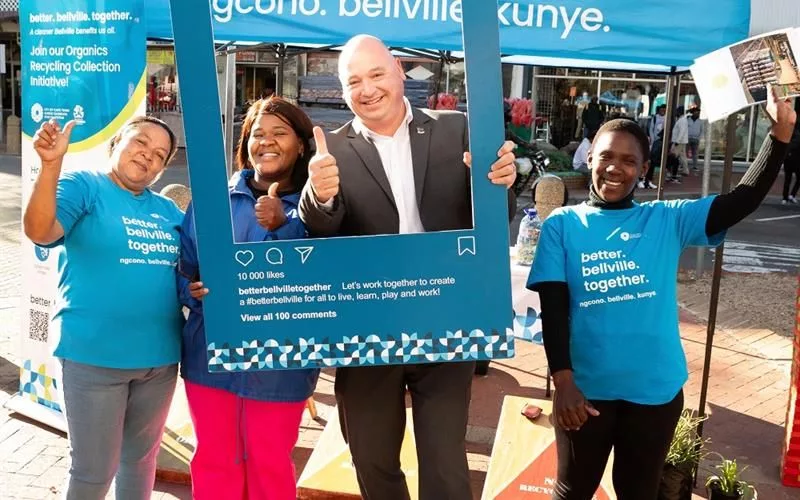Justice Yvonne Mokgoro was an extraordinary jurist, activist, and academic who was the first black woman to serve on the Constitutional Court Bench. She embodied the ubuntu philosophy, stressing the interdependence of humanity and advocating for social unity. Her legacy endures, inspiring hope for a world where human dignity, freedom, and equality form the bedrock of society. Justice Mokgoro’s impact was not limited to the courtroom, as she served on various boards and councils and incorporated a human rights perspective into the law as chairperson of the South African Law Reform Commission.
Who was Justice Yvonne Mokgoro?
Justice Yvonne Mokgoro was a revered jurist, an esteemed academic, and a tireless advocate for social unity. She was the first black woman to grace the Constitutional Court Bench, embodying the essence of ubuntu, a deeply-rooted African philosophy that underscores the interdependence of humanity. Her legacy endures, inspiring hope for a world where human dignity, freedom, and equality form the bedrock of society.
Justice Yvonne Mokgoro was no ordinary character; she was extraordinary in every sense. She was a revered jurist, a fervent activist, a highly esteemed academic, and a tireless advocate for social unity. Above all, she was a staunch guardian of the Constitution and an admirable individual. Honoured at a Special Ceremonial Court Sitting, the legacy of Justice Mokgoro resonates with the intensity of her lifelong dedication and the ground she bravely paved.
A Champion of Ubuntu Philosophy and Social Cohesion
Justice Mokgoro was the pioneer black woman to grace the Constitutional Court Bench, embodying the essence of ubuntu, a deeply-rooted African philosophy that underscores the interdependence of humanity. Justice Albie Sachs, one of her colleagues, beautifully encapsulated her spirit when he said, “Yvonne was ubuntu in flesh and blood, and ubuntu in the courtroom.” She was a staunch advocate of ubuntu in her rulings, grounding her comprehension of it in her African heritage and stressing its nexus with legal reconciliation.
She ardently advocated for a justice system that was less about punishment and more about restoration in three notable cases—Makwanyane, Khosa, and Dikoko. Her interpretations of ubuntu epitomise the Constitution’s call for empathy and care, elements that moulded her life and career. These virtues were apparent in her early desire to work with people, guiding her towards earning a degree in education with the goal of becoming a teacher.
An Inspiring Legal Journey
An unexpected meeting with Robert Sobukwe, who defended her when she was detained for protesting against apartheid police, led her down a new path. Sobukwe’s influence inspired her to pursue law, a decision for which society and the legal academia remain eternally grateful. With a B Iuris, a LLB, and two LLM degrees to her name, Justice Mokgoro’s career was a testament to her deep care and compassion for others.
Justice Mokgoro’s path was strewn with obstacles. She was once unjustly suspected of car theft, ironically while en route to the Constitutional Court where she worked—a stark reminder of the persistent influence of apartheid-era stereotyping. Yet, even in the face of adversity, she remained steadfast in her dedication to human rights, dignity, freedom, and equality.
Impact Beyond the Courtroom
Over her 16 years as chairperson of the South African Law Reform Commission, Justice Mokgoro incorporated a human rights perspective into the law. For her, this role was more than a job; it was a duty to better people’s lives. This dedication to social justice is reflected in her rulings, most notably in her interpretation of the right to social security in the Khosa judgment.
Justice Mokgoro’s influence wasn’t limited to her courtroom exploits. Her commitments included serving on boards like the Nelson Mandela Children’s Fund, lecturing at universities, sitting on the University of Venda council, and chairing the UN Human Rights Council’s Racial Justice Body. The tributes that flowed in after her demise bear witness to the incredible impact she made both locally and globally.
Even though her absence is profoundly felt, Justice Mokgoro’s legacy endures. Her strength, bravery, and unwavering dedication to human rights left an everlasting imprint. Her life and work continue to inspire many, offering a ray of hope for a world where human dignity, freedom, and equality form the bedrock of society.
As we pay tribute to Justice Mokgoro, we find resonance in the words of poet Ralph Waldo Emerson, “Success is to leave the world a bit better…to know even one life has breathed easier because you have lived.” This sentiment perfectly encapsulates Justice Mokgoro’s success: the countless lives she touched and made lighter by her existence.
What was Justice Yvonne Mokgoro’s impact on the legal space?
Justice Yvonne Mokgoro had a significant impact on the legal space as the first black woman to serve on the Constitutional Court Bench. She embodied the ubuntu philosophy, stressing the interdependence of humanity and advocating for social unity. Her interpretations of ubuntu epitomize the Constitution’s call for empathy and care, elements that molded her life and career. Her impact was not limited to the courtroom, as she served on various boards and councils and incorporated a human rights perspective into the law as chairperson of the South African Law Reform Commission.
How did Justice Yvonne Mokgoro inspire hope for social justice?
Justice Yvonne Mokgoro inspired hope for social justice by embodying the ubuntu philosophy and stressing the interdependence of humanity. Her legacy endures as a tireless advocate for human dignity, freedom, and equality, which form the bedrock of society. She ardently advocated for a justice system that was less about punishment and more about restoration, epitomizing the Constitution’s call for empathy and care.
What obstacles did Justice Yvonne Mokgoro face in her legal journey?
Justice Yvonne Mokgoro faced several obstacles in her legal journey, including being unjustly suspected of car theft while en route to the Constitutional Court where she worked. This incident is an ironic reminder of the persistent influence of apartheid-era stereotyping. Regardless of these obstacles, she remained steadfast in her dedication to human rights, dignity, freedom, and equality.
What was Justice Yvonne Mokgoro’s role at the South African Law Reform Commission?
Justice Yvonne Mokgoro served as the chairperson of the South African Law Reform Commission for 16 years, where she incorporated a human rights perspective into the law. Her dedication to social justice is reflected in her rulings, most notably in her interpretation of the right to social security in the Khosa judgment.
What other commitments did Justice Yvonne Mokgoro have outside the courtroom?
Justice Yvonne Mokgoro had several commitments outside the courtroom, including serving on boards like the Nelson Mandela Children’s Fund, lecturing at universities, sitting on the University of Venda council, and chairing the UN Human Rights Council’s Racial Justice Body. Her influence extended beyond her courtroom exploits, and the tributes that flowed in after her demise bear witness to the incredible impact she made both locally and globally.
How did Justice Yvonne Mokgoro’s life and work inspire others?
Justice Yvonne Mokgoro’s life and work continue to inspire many, offering a ray of hope for a world where human dignity, freedom, and equality form the bedrock of society. As the first black woman to serve on the Constitutional Court Bench, she embodied the ubuntu philosophy, stressing the interdependence of humanity and advocating for social unity. Her strength, bravery, and unwavering dedication to human rights left an everlasting imprint, and her legacy endures as a tireless advocate for social justice.












